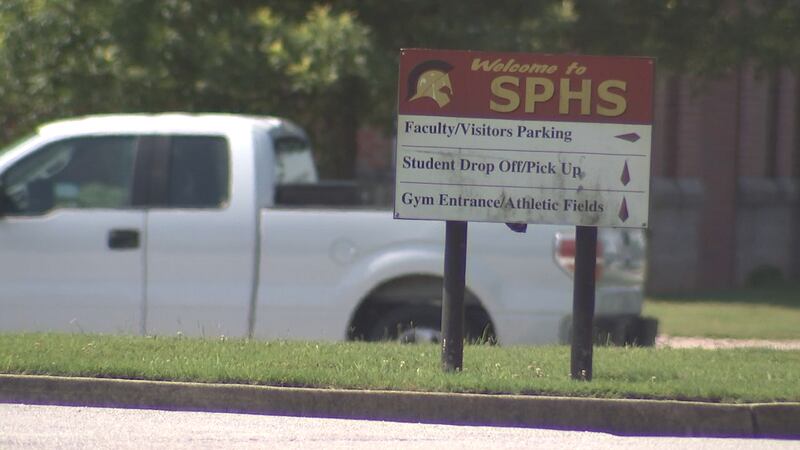School leaders in some metro districts could decide this week if students would go back to school or do virtual learning.
Fayette and Newton counties have yet to officially figure out their plans, but most of the large metro Atlanta school districts will focus solely on virtual learning.
Those districts include Cobb, Gwinnett, DeKalb, Fulton and Clayton counties, along with Atlanta and Marietta schools.
Channel 2 anchor Jorge Estevez spoke with the director of the Centers for Disease Control and Prevention Dr. Robert Redfield one-on-one Wednesday about whether students should go back to school.
During the conversation, Estevez found out that Redfield fully supports reopening schools, admitting it's going to be hard on some children if they have to stay home.
“This is not about opening schools versus the economy. This is about the public health of young people. I really do believe firmly that. I mean, these schools closed have had a serious negative impact on public health for the K through 12. So we’ve got to figure out how to get the schools back. We’ve got to do it safely. We’ve got to understand how to accommodate vulnerable teachers and particularly vulnerable students,” Redfield said. “I want to work with the school districts to take the CDC guidelines we’ve put up, translate them into practical solutions and get these schools open.”
TRENDING STORIES:
- Civil Rights icon Rev. C.T. Vivian’s casket arrives at State Capitol
- Marietta police looking for a black bear near city park
- 2 dead in northwest Atlanta recording studio shooting, multiple gunmen sought
Estevez asked Redfield what he would say to school districts that think putting new measures in place will cost too much and what, if any, relief they might get from the federal government. Estevez also asked for his advice to parents.
“Well, we’re going to be putting out more information, hopefully, this week that helped both administrators and parents to make those decisions. I think that’s part of working with them, practically. What do they really need to do? How do we get it done? But I want people to understand the price that we’re paying for the public health of these young kids by not having schools open — 7.1 million kids get their mental health services in school. That’s not happening. A lot of kids get their breakfast and lunch in school. That’s not happening,” Redfield said. “It’s the key way that we basically pick up on child abuse, sexual abuse. Mandatory reporting, not happening. And we’re seeing in high schools an increased number of suicides and an increased number of drug overdoses. Again, all I think, because these are public health consequences of having these schools close.”
Estevez also asked Redfield if people not being told to wear masks months ago put the country and Georgia too far behind from stamping out COVID-19.
“The reality is this simple device, if used by, say, greater than 95% of the American public, it would really put an impact on this virus and its ability to transmit it,” Redfield said.
And the numbers prove it. The latest statistics from the CDC show more people are willing to wear a mask.
“In April, our survey shows about 62%. In May, it was up to 76%. If you look at the northeast right now, it’s up over 87%,” Redfield said.
“Dr. Redfield, you talked about mask-wearing. Was something done that shouldn’t have been done in the beginning, where the CDC came out and said, ‘Don’t buy a surgical mask. Don’t wear a mask just yet. Let’s give it to the medical professionals.’ Would you have done something differently months ago?” Estevez asked Redfield.
“You know, I don’t think we would, but I do understand. I always quote Aristotle because Aristotle says when you have a blank tablet, you can put anything on it, and everyone will accept it. But when you have to change the tablets, you know, in his days, it was a lot of work. Sand and tablet down and put something else on. It’s very hard to get people to buy into it. So that mixed messaging about masks, we’ve paid a price,” Redfield said.
To help make up for lost time, the CDC director had a message to the younger generations.
“What I would like to ask the young people is to join the team, help us get control of this outbreak. You know, for some people, they say what I should say is if you want college football back, let’s get control of this outbreak. Wear your mask,” Redfield said.
“Are you for mandatory masks for kids — maybe, of a certain age?” Estevez asked Redfield.
“I think when the schools open, I think they’re going to have to include masks,” Redfield said. “We do have a guidance coming out, hopefully, this week that’s going to be face masks for school reopening. And I think, just like we can suggest, that there’s a lot of environments that I’ve heard no shirt, no shoes, no mask, no entry for a lot of retail stores.”
He also offered a glimpse of scientific hope for the future.
“It’s very likely in the next few weeks to a month, we’ll have new therapies — whether it’s convalescent serum from people who have recovered, that serum can now be used to help other people. Companies are now developing what we call monoclonal antibodies — that are the antibodies to fight and kill this virus they develop in a test tube so they can use therapeutically,” Redfield said.
Cox Media Group





